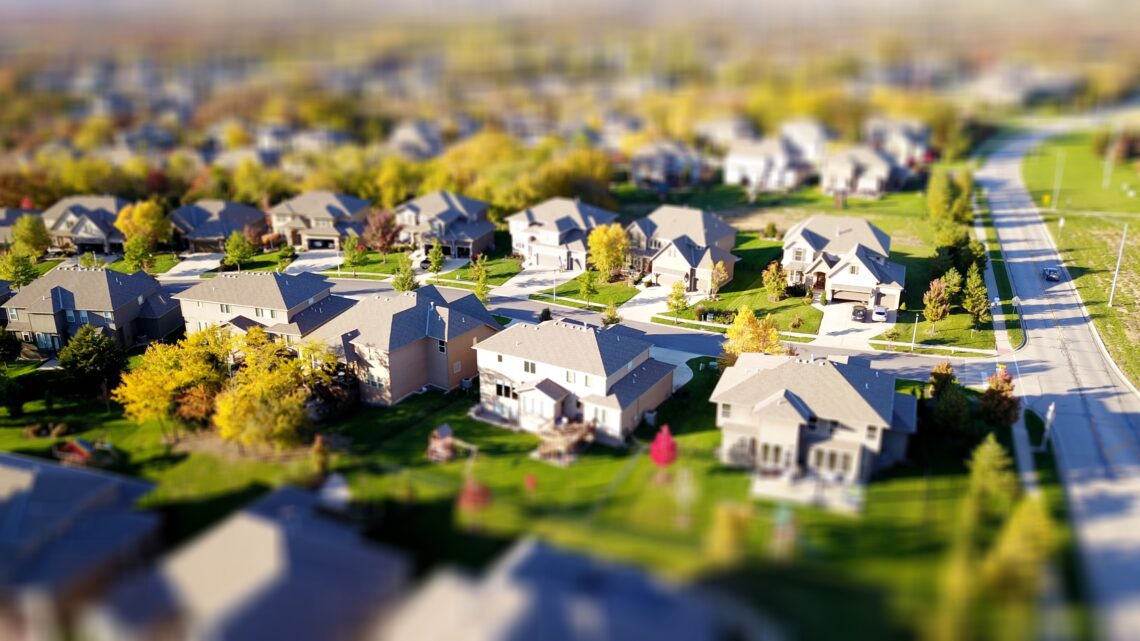10.26.2023 | Buying
Is Smart Home Technology High on the List for Homebuyers?

Smart home technology has advanced in recent years and has become integral to modern living. These innovative systems can help save on heating costs, reduce your carbon footprint and make your life more convenient. From smart thermostats to video surveillance and AI assistants, this tech can add value to your home and is a perk for many homebuyers.
What is a Smart Home?
A smart home allows homeowners to remotely control appliances, devices, lights, and thermostats using a phone or voice commands. You can connect devices through a central hub, automate systems, and control functions even when you’re not at home.
Basic Elements of Smart Home Technology
To integrate smart home technology in its simplest form, you need a smart hub, control device (like a smartphone), an internet connection, and an appliance. From there, the extent of automation and tech in your home is up to you!
Integrating Technology into Your Home
1. Smart Home Hubs
Smart home hubs act as a central control for connected devices. Powered by voice assistants like Amazon Alexa or Google Home, these hubs allow you to dim the lights, lock the doors, or turn up the thermostat with a simple voice command. Because they are connected to an app on your phone, you can monitor the devices and adjust when you’re not home.
2. Home Automation
Automating things like lighting, heating, and sprinkler systems can add considerable cost-savings to your water, gas and hydro bills. Setting up these systems means you can run them only when needed. You can adjust if you are on vacation or out of the house to use as little energy as possible.
3. Connected Appliances
Many appliances can now be connected to your smart home hub and controlled with either voice commands or an app on your phone. While not necessary, they are fun and can make your life more convenient. Turn the microwave or oven on while sitting on the couch watching TV, or check in with your fridge at the grocery store. Some smart refrigerators have cameras to peek at what you need while you’re shopping. You can also access recipes and add items to your shopping list through a touchscreen on the door.
4. Energy Management Systems
Energy monitors can give you a detailed breakdown of how much energy you are using. Knowing exactly where the drains are in your home can help you adjust accordingly. Some of these systems suggest how to cut costs and reduce your footprint based on the data they collect.
5. Surveillance Systems
It’s never been easier to monitor your home with easy-to-install video cameras and doorbell cams that you can access straight from your smartphone. With remote access and instant alerts, you can see in real-time what’s happening in and around your home when you’re away.
6. Entertainment and Media
Smart TVs, streaming devices, gaming consoles, and VR systems are changing how we consume media at home. Connected speakers allow you to play music and communicate throughout multiple rooms in your home. Virtual reality headsets give you an immersive experience right in the comfort of your own home.
7. Health and Wellness Technology
Smart scales, fitness trackers and connected medical devices make it easier than ever to monitor your health goals from the comfort of your home. Sensors throughout the house can alert caregivers to falls, while voice-activated assistants can call for help.
Pros and Cons of Smart Home Technology
While there are many pluses to adding smart home technology into your home, there are drawbacks to consider. It’s not for everyone. But if you love technology and want to add a bit of fun and convenience to your home, smart tech can be the way to go.
Pros of Smart Home Technology
- Convenience – automating tasks and allowing remote control makes it easier to adjust lighting, temperature, and other features in your home
- Energy efficiency – automated systems help to optimize energy use and save on utility bills.
- Improved security – doorbell cameras and surveillance systems allow you to monitor your home easily while away.
- Enhanced entertainment – with high-def screens and surround sound, you can get a cinema experience right in the comfort of your own home.
Cons of Smart Home Technology
- Installation costs – even though smart home tech can save you in the long run, you’ll also have to put money out when you first install it
- Internet-dependent – it’s easy to become dependent on these devices once they are in place, and they won’t work during power or internet outages
- Privacy concerns – with online monitoring, there is a chance of strangers hacking into your system.
- Complicated interfaces – there’s always a learning curve with new technology, and troubleshooting can be complicated for those who aren’t technologically advanced.
Smart Home Technology and Homebuyers
Smart home technology can be a plus for homebuyers and thus increase the value of your property. The devices themselves, and whether or not they will stay in the home when you sell, play a significant role in perceived value. One thing is sure: buyers are drawn to the convenience, efficiency and comfort of innovative technology. It seems it will only become more popular and higher on their lists of needs and wants.
Technology continues to reshape the way we live, work and play. The trend of integrating it into our homes will only continue to strengthen. The convenience, efficiency and security it provides are becoming increasingly important to home buyers.





